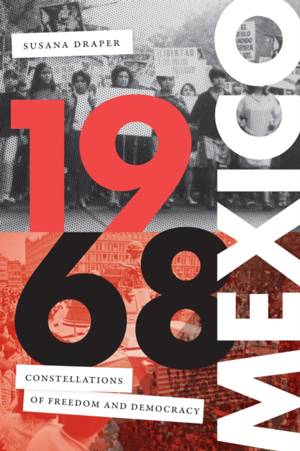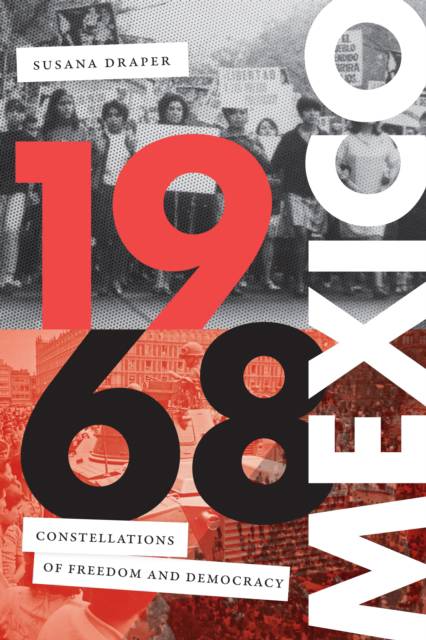
- Afhalen na 1 uur in een winkel met voorraad
- Gratis thuislevering in België vanaf € 30
- Ruim aanbod met 7 miljoen producten
- Afhalen na 1 uur in een winkel met voorraad
- Gratis thuislevering in België vanaf € 30
- Ruim aanbod met 7 miljoen producten
Zoeken
Omschrijving
Recognizing the fiftieth anniversary of the protests, strikes, and violent struggles that formed the political and cultural backdrop of 1968 across Europe, the United States, and Latin America, Susana Draper offers a nuanced perspective of the 1968 movement in Mexico. She challenges the dominant cultural narrative of the movement that has emphasized the importance of the October 2nd Tlatelolco Massacre and the responses of male student leaders. From marginal cinema collectives to women's cooperative experiments, Draper reveals new archives of revolutionary participation that provide insight into how 1968 and its many afterlives are understood in Mexico and beyond. By giving voice to Mexican Marxist philosophers, political prisoners, and women who participated in the movement, Draper counters the canonical memorialization of 1968 by illustrating how many diverse voices inspired alternative forms of political participation. Given the current rise of social movements around the globe, in 1968 Mexico Draper provides a new framework to understand the events of 1968 in order to rethink the everyday existential, political, and philosophical problems of the present.
Specificaties
Betrokkenen
- Auteur(s):
- Uitgeverij:
Inhoud
- Aantal bladzijden:
- 272
- Taal:
- Engels
- Reeks:
Eigenschappen
- Productcode (EAN):
- 9781478001430
- Verschijningsdatum:
- 10/09/2018
- Uitvoering:
- Paperback
- Formaat:
- Trade paperback (VS)
- Afmetingen:
- 150 mm x 234 mm
- Gewicht:
- 362 g

Alleen bij Standaard Boekhandel
+ 112 punten op je klantenkaart van Standaard Boekhandel
Beoordelingen
We publiceren alleen reviews die voldoen aan de voorwaarden voor reviews. Bekijk onze voorwaarden voor reviews.











